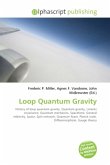High Quality Content by WIKIPEDIA articles! Quantum mechanics (QM) is a set of scientific principles describing the known behavior of energy and matter that predominate at the atomic and subatomic scales. QM gets its name from the notion of a quantum, and that quantum value is the Planck constant. The wave particle duality of energy and matter at the atomic scale provides a unified view of the behavior of particles such as photons and electrons. While the notion of the photon as a quantum of light energy is commonly understood as a particle of light that has an energy value governed by the Planck constant, what is quantized for an electron is the angular momentum it can have as it is bound in an atomic orbital. When not bound to an atom, an electron's energy is no longer quantized, but it displays, like any other massive particle, a Compton wavelength. While a photon does not have mass, it does have linear momentum. The full significance of the Planck constant is expressed in physics through the abstract mathematical notion of action.
Bitte wählen Sie Ihr Anliegen aus.
Rechnungen
Retourenschein anfordern
Bestellstatus
Storno








